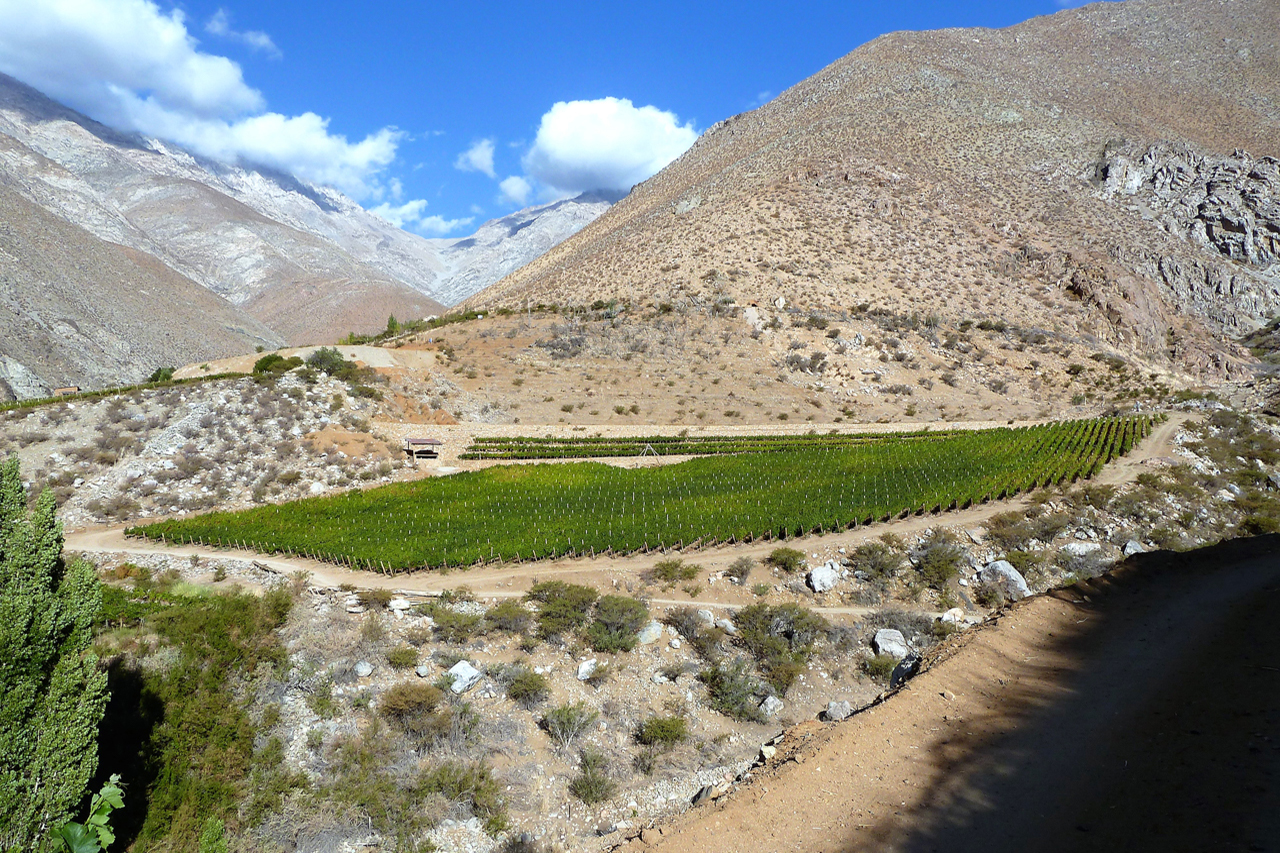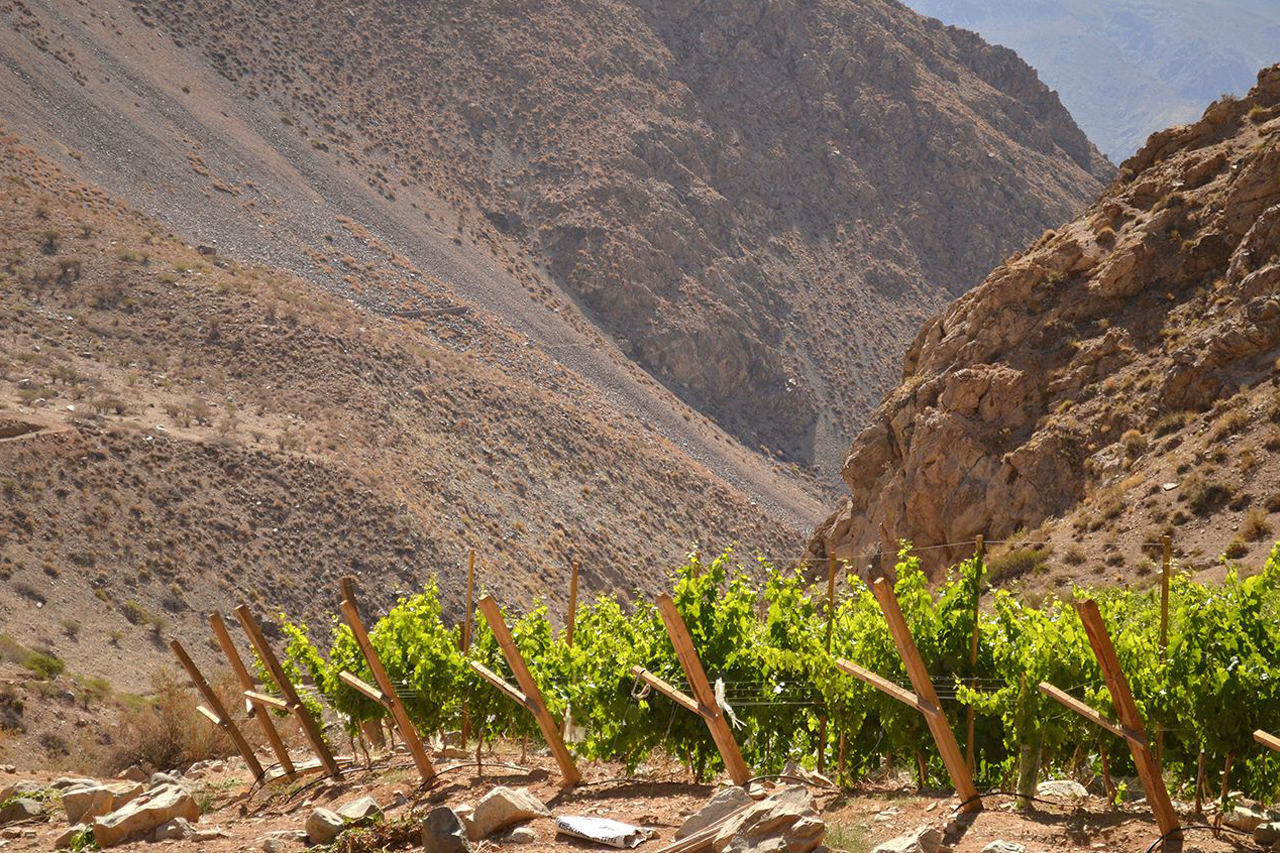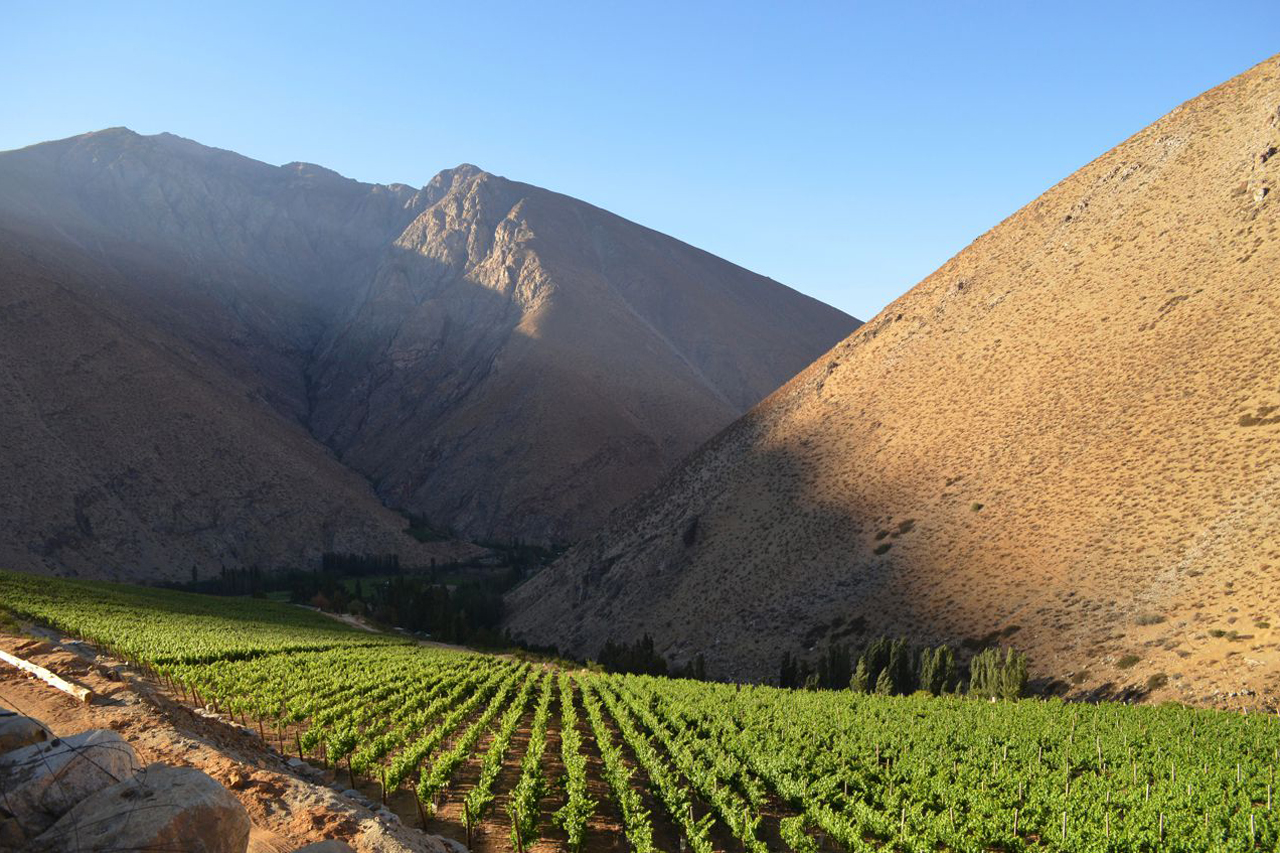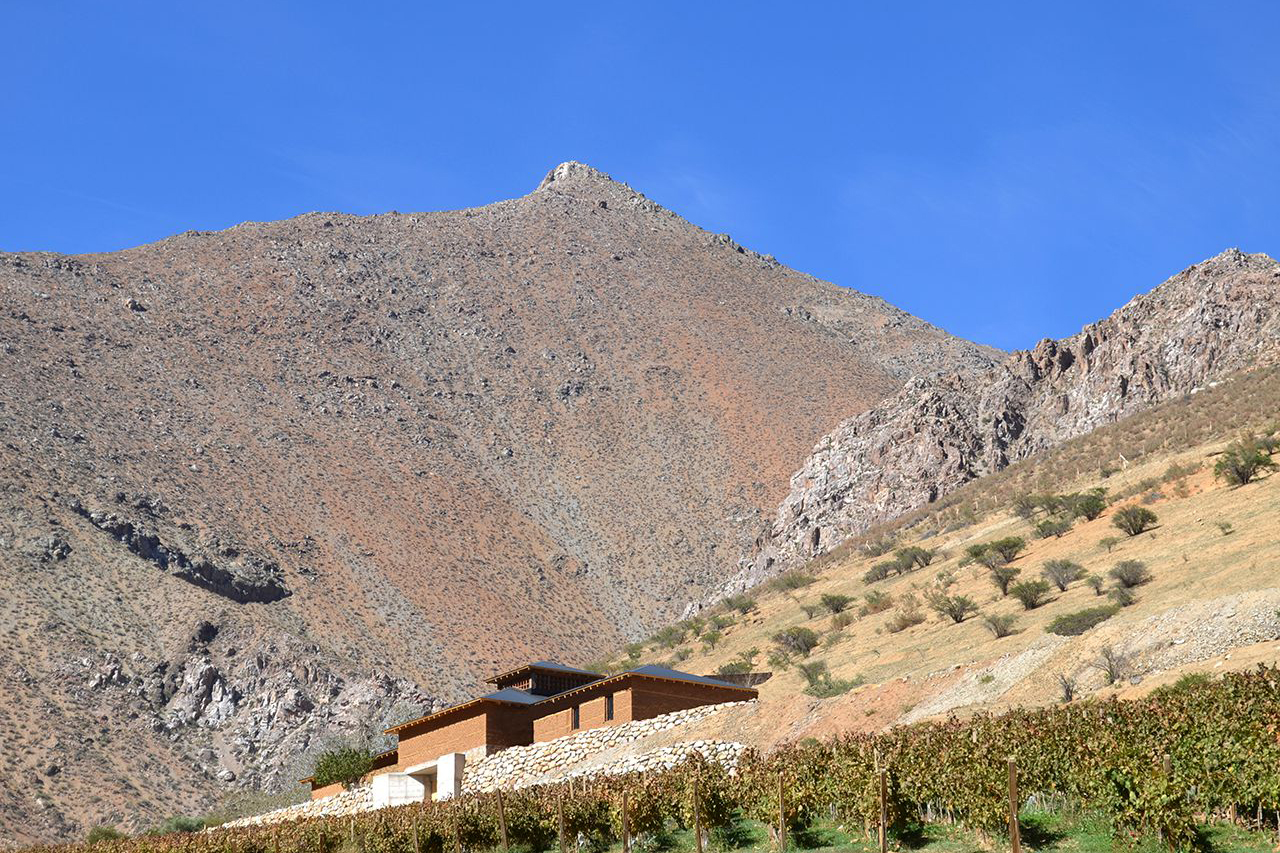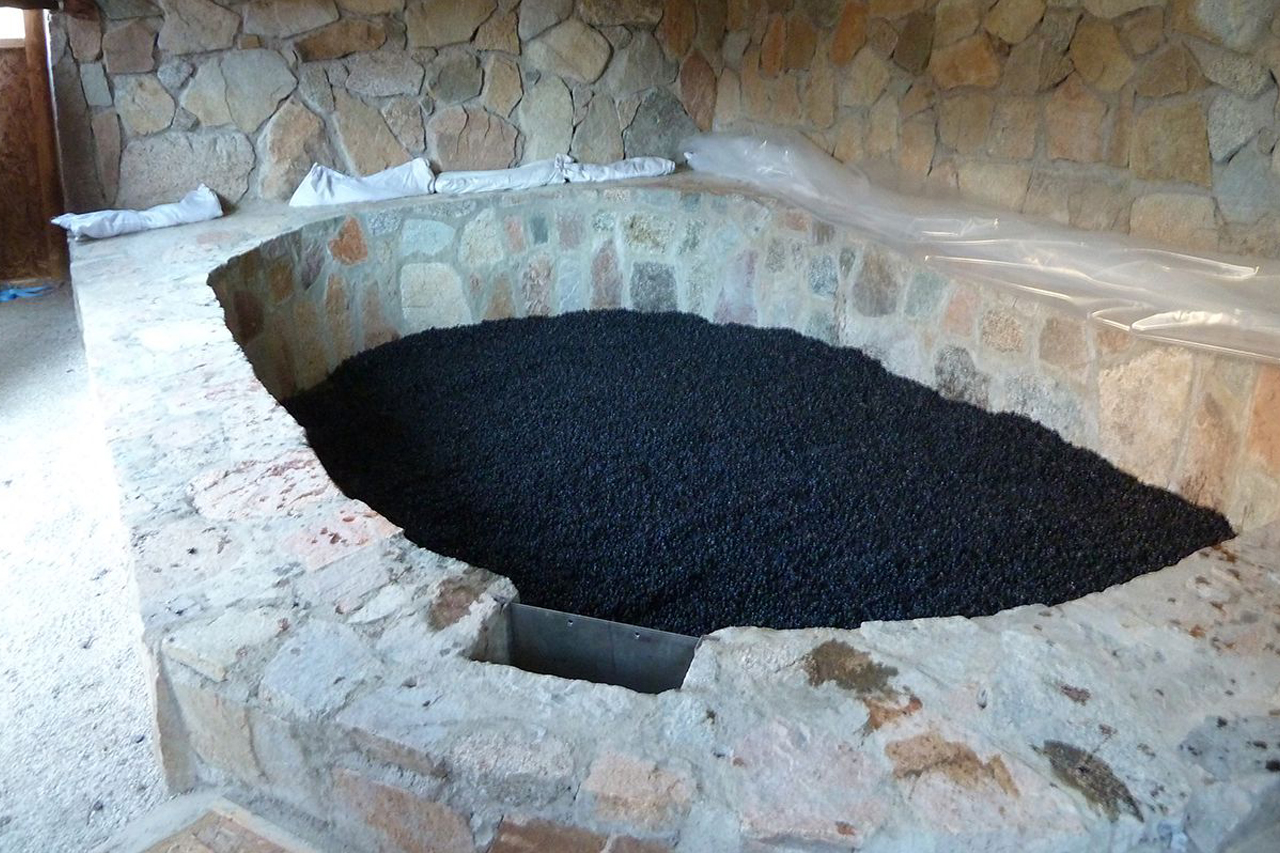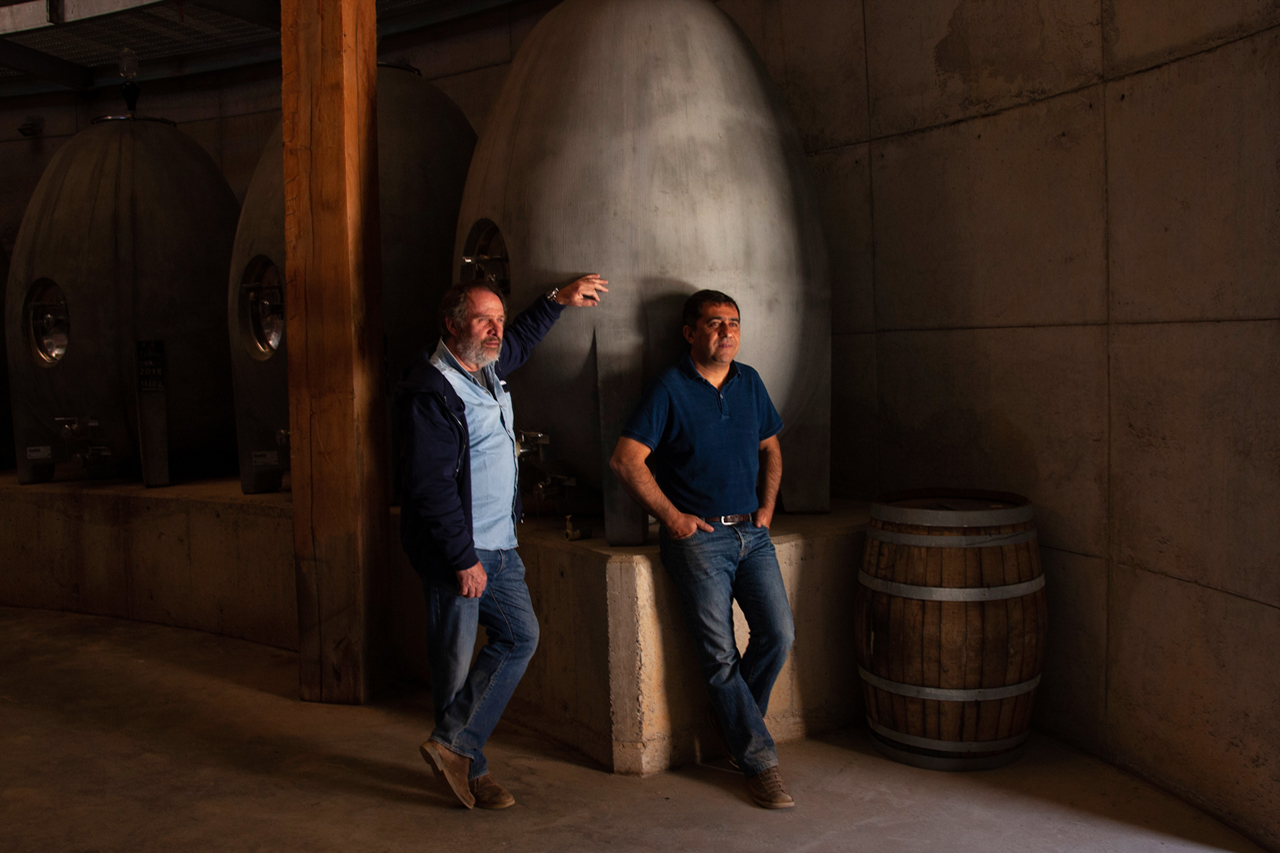

A Chilean friend once remarked that the only people you will find in northern Chile are Chileans dreaming of moving […]
Keep ReadingA Chilean friend once remarked that the only people you will find in northern Chile are Chileans dreaming of moving to the south and German tourists. After visiting, you could add astronmers, pisco afficinados, peculiar new-age pilgrims, and some rather idiosyncratic winemakers to this list. The Alta Elqui is as remote as one is likely to find anywhere on earth that humans have thought: Yeah, this looks about the right place to settle down.
An arid mountain valley at dizzying elevations approaching 2400 meters above sea level, the only water source is snowmelt from the surrounding mountains each spring – just enough trickles into the granitic subsoils and granite bedrock to support the hardiest of vegetation on thin strips of land bordering the Elqui. Centuries ago, locals discovered that grapes could grow in the Alto Elqui, but apart from some sacramental wine, these grapes mostly turned into pisco – the national spirit of Chile and Peru long argued over between the two since the War of the Pacific of 1879-1884.
Alvaro Flaño was not drawn to the hamlet of Alcohuaz for the pisco, the unparalleled clear skies perfect for professional and amateur stargazing, or the apparent confluence of lay lines. At least they don’t admit it. Instead, they settled here on a hunch that great wines could be carved out of these poor granitic soils. After some guidance from viticulturalist Eduardo Silva, they established Viñedos de Alcohuaz in 2005 by planting Syrah, Malbec, Cabernet Franc, Merlot, Garnacha, Petite Syrah, Petit Verdot, Cariñena, and Touriga Nacional.
The first plantings were an experiment to see what survived the cliamte and how each variety expressed itself in such an untested place. The Merlot and Cabernet Franc didn’t make it, but the other grapes thrived. Based on these early results, Alvaro planted more vineyards, and with the addition of two hectares of recently planted Roussanne and Marsanne, the estate now totals twenty hectares. This unique experiment caught the attention of Marcelo Retamal, who joined Alchohuaz before their first vintage.
Marcelo, or Reta as he prefers to be called, is one of Chile’s most esteemed winemakers and a leader in a burgeoning back-to-the-soil movement sweeping through the country. When he joined Viñedos de Alchohuaz, he was the iconic winemaker of DeMartino where he was already a proponent of site expression, heritage vines, non-interventionist winemaking, and a champion for wines made outside of Chile’s Central Valley. Given the opportunity to not only work with vineyards organically farmed from the start, he could also implement a series of practices (or, more precisely, non-practices) to ensure that the uniqueness of Alto Elqui isn’t lost in the cellar. Each variety is picked by hand and crushed by foot in stone lagars. Fermentations are spontaneous. After pressing, the wine is gravity-fed into concrete eggs, Stockinger foudres, or French oak vats for undisturbed aging. Some wines are made from single varieties and parcels, while others are blends where each variety supports the others. After fifteen years of tasting and blending, each cuvée has suggested itself rather than being imposed by some formula or plan.
All these steps reveal and preserve the natural acidity and freshness innate to this mountain fruit. They combine the radiant abundance of warm sunny days, a backbone of minerality from the granite, and the liveliness of cold summer nights in the mountains. These lo-fi wines are pure, vibrant, thrilling, and vital. Perhaps it has something to do with all those the ley lines that draw the new-agers to the area. We’re more inclined to believe Alvaro’s vision and Reta’s confidently minimalist instincts.
Close
